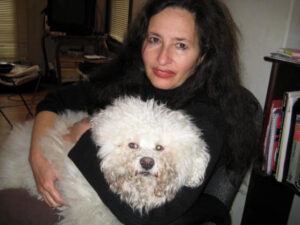Confidence – some people have it; some people don’t. I watched my son as he readied himself for his role as Richard III in Shakespeare’s tragedy, rehearsing his lines with never a waiver or false step. When I nervously asked him if he was afraid he would forget some of the words in his soliloquy on stage, he looked evenly at me and said, in the confident tone he seemed to have even as a toddler, “No, I’m not. I won’t forget my lines. I don’t do that.” And, he was right – the day of the show, he was masterfully perfect; not a single mistake.
I represent the other end of the spectrum – I cannot do public speaking and have declined every single opportunity to do so because I am certain I’ll either forget what I’m supposed to say or, even worse, pass out in the effort. Of late, I’ve taken it upon myself to study the characteristics of confident people and, by doing so, become one myself, admittedly a daunting task in theory and in its prospective execution. Here is what my research has disclosed.
The word confidence comes from the Latin “fidere” meaning “to trust.” To be self confident is to trust in oneself and, as a result, to engage successfully in the world. Confidence is linked to self esteem – great confidence will boost your self esteem. The quality of confidence allows one to believe in their abilities and to actively embrace taking risks, pursue challenging goals and opportunities. Confident people understand that mistakes are integral to growth and that each misstep is a valuable lesson, a stepping stone, towards future success. When you are confident, you are more likely to step outside your comfort zone, try new things and bounce back from setbacks because you have that pre-existing positive mindset which is based on a conviction that your judgment is trustworthy and sound. You can be as rich as Elon Musk, but you still can’t buy the positive self image and self worth that true confidence is predicated upon. Psychologists will tell you that confident people tend to be happier than those who aren’t. One individual, a doctor T.C. North, said in his article “The 12 Benefits of Increasing Your Self Confidence” that “A benefit of increasing your self confidence is it adds to your happiness, adds to your joy.” Another practitioner, Nathaniel Branden, continued that stream of thinking when he said that “the reputation you have with yourself – your self esteem – is the single most important factor for a fulfilling life.”
Clearly, confidence is critically important in life – it allows us to move more easily and happily through the world. But, how does one improve that self esteem which is inextricably linked with going boldly and unflappably into the word? I’ve put together a list that continues to help me – a constitutionally non-confident person – enormously, ideas gleaned from my research in the field of psychology:
- Psychologist Rick Hanson in his Psychology Today article (9/14/2018) says that confidence is linked to “being on your own side.” Are you REALLY on your own side, or are you undermining yourself with bad habits, harsh self criticism and bad choices? If so, throw out the story of your life if you are NOT a hero in it, and write a new story where you have a sense of agency and accept the fact that YOU are the architect of your own narrative. Refuse to be a victim or someone who blames everyone else.
- Take risks and see what happens. Let go of the fear of possibly making a mistake. Forget about the approval of others and what they might say which diminishes your ideas or actions. Don’t spend time with people who are not good for you. No one can take you down if you don’t give them the power to do so.
- Make a list of things you are good at. Give yourself compliments. Don’t carry things that weigh you down – feelings of bitterness, anger or resentment. Find it in your heart to forgive; that is one of the hardest lessons I personally have had to learn, but it continues to be a lifesaver.
- Stop comparing yourself to others – focus on the interior work YOU have to do on yourself.
- Practice relentlessly on being a better person, the type of individual you’d want your own child to be. More kind, generous and compassionate.
J.M. Barrie, the author of Peter Pan, famously said “The moment you doubt whether you can fly, you cease forever to be able to do it.” Few of us are born confident but, with a bit of copious effort, we too, as writer Louisa May Alcott averred, will “not (be) afraid of storms for (we are) learning how to sail (our) ship.”



















